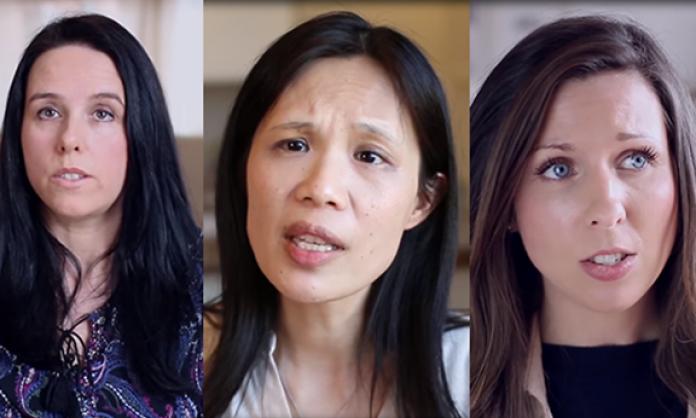It must be the most uninspiring rallying cry ever dreamt up by a political strategist: “It’s OK to vote no”. The sense of hope and optimism that has defined the iconic slogans of the great political movements of the 20th century – from Whitlam’s “It’s time” to May ’68’s “All power to the imagination” or the US civil rights movement’s “We shall overcome” – is conspicuously absent. It makes “Jobs and growth” look like “Land, bread, freedom”.
This sad state of affairs is a fitting metaphor for the campaign itself: it has no argument. For a campaign that is defending the existing law, a law that was brought in and supported throughout most of its existence by both major parties and at the time the majority of the public and civil society, it is nothing short of pathetic.
The main emphasis of the No campaign’s strategy reflects this weakness: it aims to make the postal survey a referendum on anything but marriage equality. The Safe Schools program is the No campaign’s favoured issue in this regard. By mentioning the words “children”, “sex” and “gender fluidity” in close enough proximity as frequently as possible, they hope to terrify every parent into voting No.
In the Australian Jewish News, the No campaign ran an advertisement declaring that a Yes vote would bring about “transgender marriage”, a meaningless statement aimed at tapping into the hatred towards transgender people that the right wing has expended considerable energy whipping up.
The merits or otherwise of LGBTI parenting is the other moral panic issue that the No campaign evokes. The agenda is transparent: whip up concern about the welfare of children by appealing to the well-worn homophobic trope about LGBTI people influencing and corrupting children. And exploit the latent homophobic fears of those not inclined to back open discrimination, but who may be influenced by Murdoch press scare campaigns.
That No campaigners resort to such disgraceful tactics is tacit acknowledgement that the majority of ordinary people can’t be won to active discrimination based on undisguised prejudice. Just as the Northern Territory Intervention was made possible only by sensationalist claims about child abuse in Aboriginal communities, defeating marriage reform is conceivable only if enough people are won to the idea that it’s about something else entirely.
Just as spurious are the claims about the supposed threat to religious freedom and free speech. Leaving aside the no doubt excessive religious protections that will likely be in any eventual marriage equality bill, the idea that removing religious prejudice from its privileged position in law represents an incursion on religious freedom is nothing short of absurd.
The No campaign argues that if marriage rights are extended to LGBTI couples, homophobes will no longer be allowed to air their prejudices, which will represent an intolerable limitation on their religious freedom and free speech. But the legislation of no fault divorce in 1975 has not stopped Tony Abbott and his allies publicly arguing to repeal it, as he did most recently in 2009 as part of his role as opposition families spokesperson. Nor has the removal of abortion from the criminal code prevented Catholic hospitals continuing to deny women abortions or Catholic schools and universities denouncing it as a sin.
Indeed, by this logic the fact that children born out of wedlock are no longer shunned and their mothers made pariahs is a violation of the religious freedom of right wing Catholics.
And in a rare acknowledgement that the postal survey is even going on, the prime minister has defended the actions of a Presbyterian pastor who denied the right of a couple to be married in his church because the bride expressed support for equality on social media – an issue apparently more worthy of active support from the country’s most powerful politician than ending homophobic discrimination.
There is, sadly, no danger that religious bigots will be denied access to the ample means by which their views about how the rest of us should live are routinely espoused and enforced or protected in law. All that marriage equality will mean is that the civil law in relation to marriage will no longer be one of them.
A final feat of logical gymnastics which the No campaign is hoping will help it fend off total ideological annihilation is the notion that it is a besieged minority subject to bullying and slander by the Yes campaign.
In fact, the only reason we are having this postal survey is because of the efforts, over many years, of a marginalised and oppressed group to assert its rights against the powers that be – powers that have routinely criminalised, persecuted and vilified LGBTI people, forcing them to live their lives behind a shroud of secrecy and shame or risk social and family rejection.
By contrast, the No campaign has commanded the loyalty of successive governments since the Marriage Act was amended in 2004, such are its power and influence in mainstream politics. It has, according to media analysis conducted by Streem, received up to four times more coverage than the Yes campaign. And it has the law, weight of tradition and the religious establishment on its side.
Such is the influence of the No campaign that efforts to convince the public that up is down and black is white have not become a total joke. It’s up to the Yes campaign to make sure that No campaigners are made into one this November.









